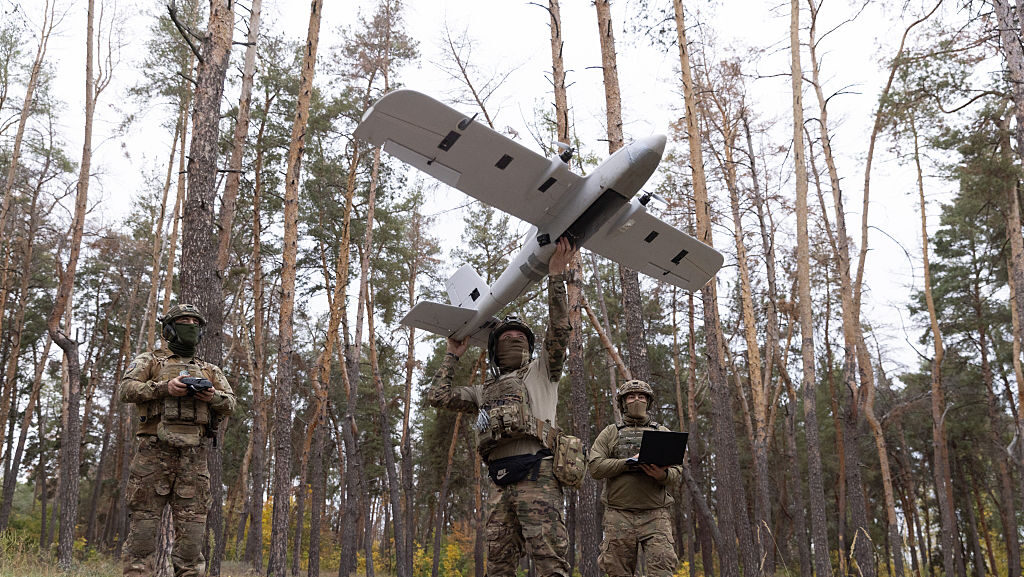Copyright Breaking Defense

BELFAST — In pursuit of acquiring technologically advanced weapon systems, Nordic army leaders are warning industry of a new critical requirement: they must have already proved their worth in theUkraine war. “For new [supply] chains and new technologies, I’m never going to buy anything that hasn’t worked in Ukraine,” Maj. Gen. Peter Harling Boysen, chief of the Royal Danish Army told industry and US Army representatives said last week during an AUSA panel discussion on Northern Europe. Boysen said when in discussion with suppliers, he routinely asks them if their product has been used in Ukraine. Speaking on stage alongside Boysen, Lt. Gen. Pasi Välimäki, Commander of the Finnish Army, also shared a similar message. From “the products that we have seen here at AUSA” the show floor includes “a demonstrator, that’s nice,” but systems operating in Ukraine are much easier for industry to demonstrate their “actual product works.” “That’s the secret,” to pique my interest, he added. Välimäki suggested that with a speedy acquisition cycle in which he has a two year “window of opportunity” to sign new equipment contracts, he needs platforms that are mature and shown to be effective. “You’re either in or you’re out,” he said of the procurement plan. Aivars Puriņš, Latvia’s state secretary, told Breaking Defense on the sidelines of AUSA that manufacturers should be testing their new technologies as close to “a deployed situation” as possible, in order to gain product feedback. “We have had too many stories, I think, over these years in Ukraine [where] the best technology solutions were deployed, and suddenly they didn’t work as they were kind of supposed to be and that’s the … logic we should not be repeating.” He said that Latvia is focused on “building up” a drone test range, after establishing a drone competency center in Riga. “What we want to have is Ukrainian officers, kind of coming through, being kind of a continuous presence, which would kind of give [them a] better place” for testing equipment as close to “real-life conditions” as possible. Drone-Focused Programs Amid Incursions Opened last month, the competency centre serves as a “national platform for the development and integration of drone technologies within the Latvian National Armed Forces,” according to a Latvian Ministry of Defense statement. “Its core mission will be to ensure the continuity of drone system and component supplies for the National Armed Forces in times of crisis, support Latvian companies in developing drones tailored to military operational needs.” The centre can cater for unmanned aerial systems (UAS) across air, land and sea domains, alongside counter UAS (C-UAS) solutions. Drone innovation is also driving Norwegian army modernization efforts. “We [have] launched a drone program with an inspector of drones who will be in charge of coordinating the Norwegian army’s drone initiatives, combined with what we’re doing to support Ukraine with drones as well,” Maj. Gen. Lars Lervik, chief of the Norwegian army, told Breaking Defense last week. Funding of 1.5 billion Norwegian Krone ($1.49 million) is to be invested in the effort over 10 years. “The overall idea” is not just to get better value for money related to new acquisitions, but to also “coordinate overall efforts to make sure that there is actually drone innovation happening in all parts of the army,” said Lervik. Notable progress to date includes the rollout of a drone swarm pilot, involving Six Robotics Valkyrie autonomous drones, designed for intelligence, surveillance and reconnaissance. Lervik said that additionally, the Norwegian Army is also testing first person view, interceptor and attack drones. “My ambition is to be able to integrate” them into swarms eventually. “We need to accept that there are no perfect solutions. … We can’t afford to have a national special requirements. If it’s good enough for the three other Nordic members, it’s good enough for me,” said Denmark’s Harling Boysen. The focus on uncrewed systems innovation comes amid a series of Russian drone incursions across Europe that has led to NATO boost its presence on the Eastern Flank. A flurry of other drone sightings over several European airports has also prompted the European Union to float development of a drone wall, based around a multi-layered air defense network, complete with a mix of counter-drone solutions. Harling Boysen said that Russian drones flying in European air space should be shot down to send a “clear signal” to Moscow that “we know what you do” and it is unacceptable. Latvia’s Delayed Long-Range Fire Elsewhere, Lervik said that Norway’s long range precision fires acquisition, planned to see a preferred contractor selected this past summer, has been delayed. “There’s lots of other things happening in the procurement world, I think that that was mostly the part [that caused a delay], but of course we also needed to get the necessary information from possible vendors, including [the] FMS case, from the US. So that’s taken a while as well,” he said. The “hope” said Lervik is to “be able to conclude the process of comparing alternatives and give a recommendation to government by Christmas,” ahead of a contract award provisional planned for “early” 2026. Lockheed Martin’s M142 High Mobility Artillery Rocket System (HIMARS) and South Korea’s Hanwha Aerospace K239 Chunmoo Multiple Launch Rocket System (MLRS) are two of the leading contenders involved in the competition, according to Lervik. Rounding off latest developments on other big ticket acquisitions, he said that Oslo could buy as many as 80 BAE Systems CV90 infantry fighting vehicles, made to the advanced MkIV standard. The future order is part of a wider joint procurement plan that also features Estonia, Finland, Lithuania, the Netherlands and Sweden.



